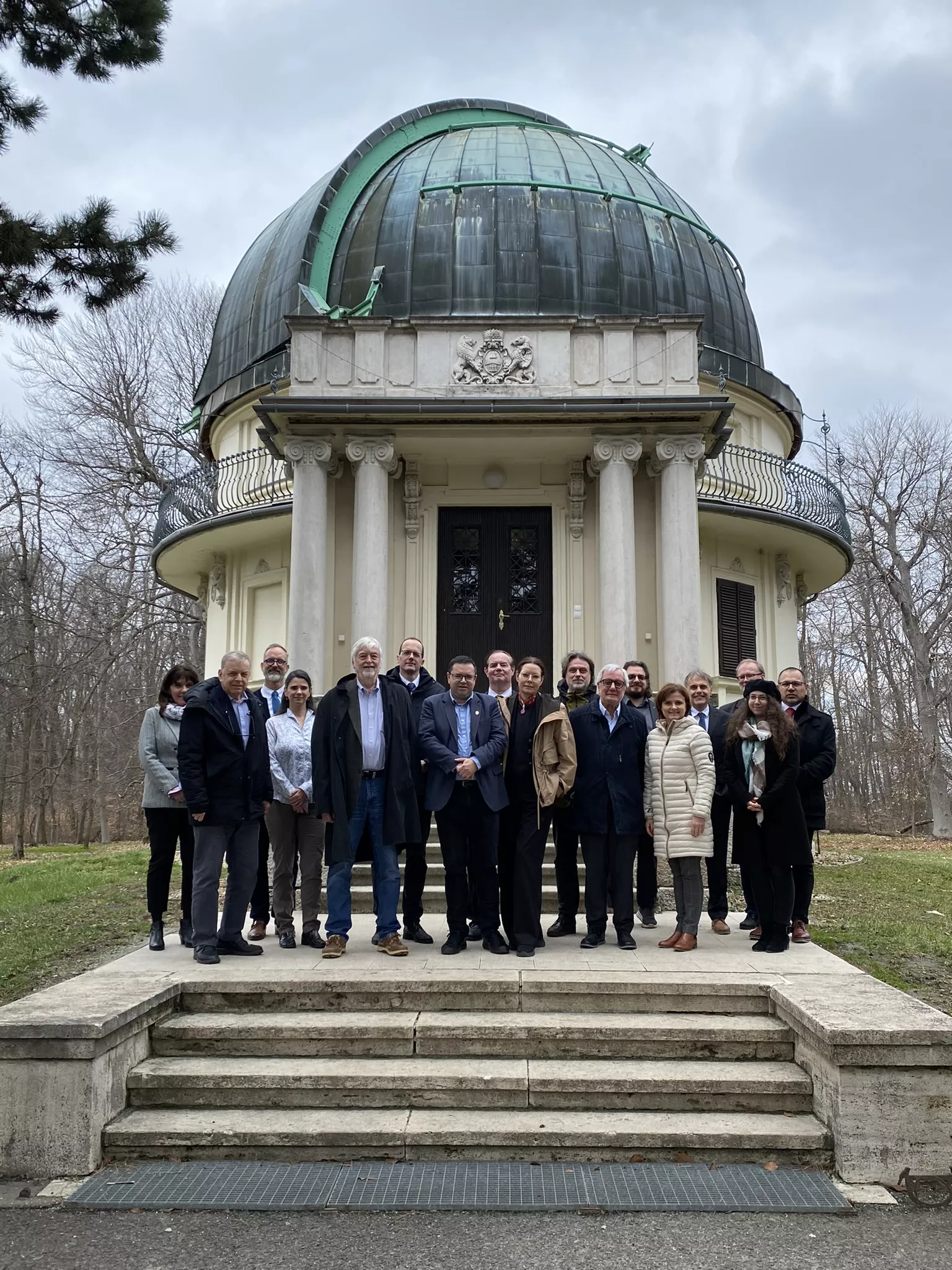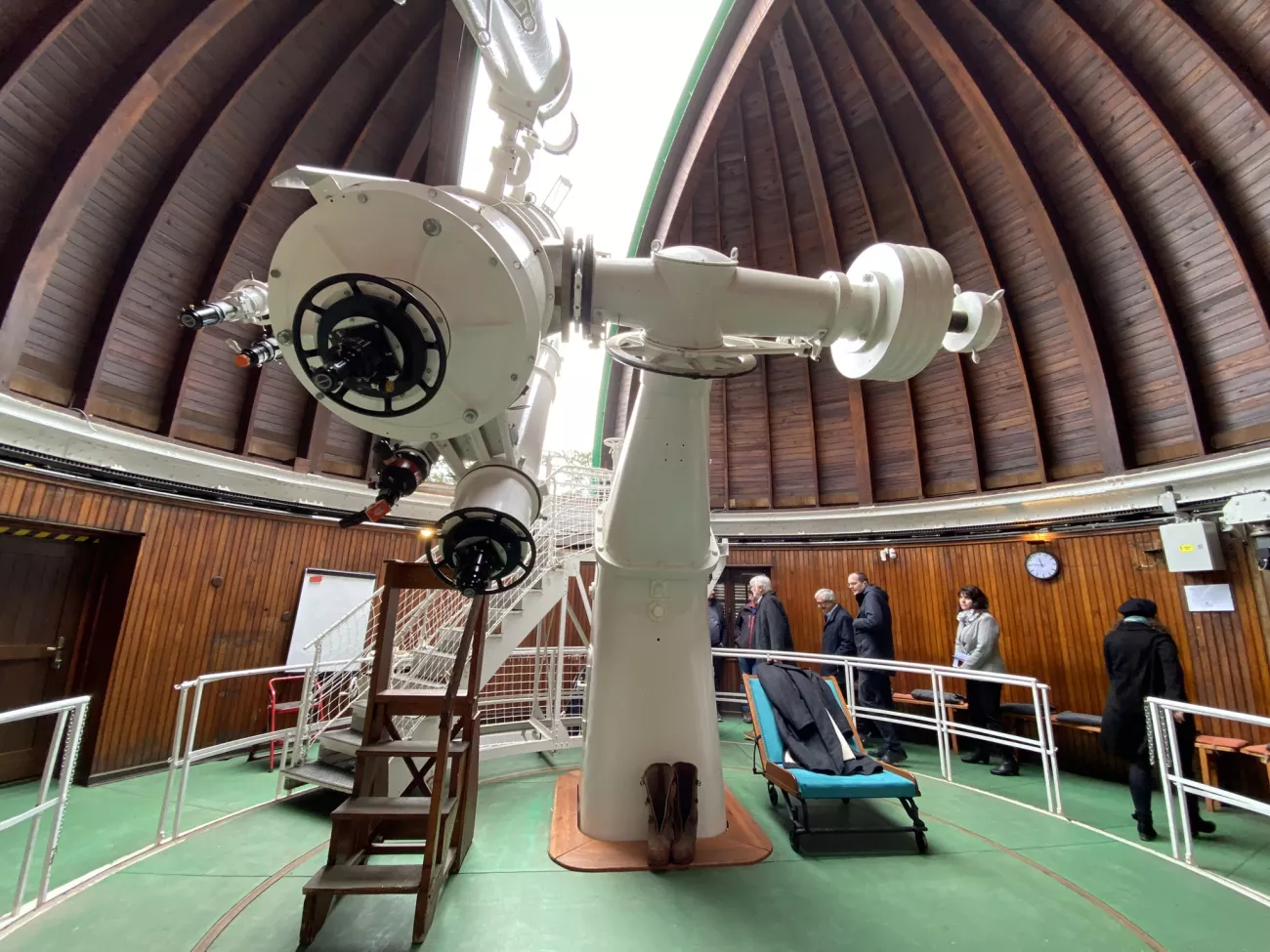As part of the comprehensive evaluation of the HUN-REN research institutes, the on-site review of the scientific activities of the HUN-REN Research Centre for Astronomy and Earth Sciences (HUN-REN CSFK) and its three affiliated institutes took place on 12 and 13 March 2024. This marks the completion of the on-site assessment of the network’s seven institutions operating in STEM fields, including a total of twelve research institutes. Based on experiences, both leaders and researchers have expressed a positive view of the process and are open to recommendations for further development.

During personal meetings with the leaders of the institutes and research groups, the Assessment Committees ‒ including internationally renowned researchers aligned with the institutes' profiles ‒ familiarised themselves with the research activities and local research infrastructures, and met with PhD students. As with all other sites, the visit to the HUN-REN RCNS concluded with the committee sharing its initial impressions and key recommendations. The continuously prepared written assessment reports are being sent to the leaders of the institutions for review prior to finalisation.
The members of the Assessment Committee evaluating HUN-REN CSFK are:
Prof. Alexander J.B. Zehnder, Visiting Professor at Nanyang Technological University (NTU), Singapore, Professor Emeritus at ETH Zurich, Switzerland, Chairman of the HUN-REN Advisory Board
Dr. István Szabó, PhD, Deputy CEO for Strategy and Innovation at HUN-REN Headquarters, former Vice President for Science and International Affairs at the Hungarian National Research, Development and Innovation Office, and founder of the Innovation Section at the Hungarian Economic Association
Prof. Dr. Peter Török, DPhil, Professor at Nanyang Technological University (NTU), Director of Imaging at the Singapore Centre for Environmental Life Sciences Engineering (SCELSE), Director of the NTU Optical Bio-Imaging Centre (NOBIC), and Interim Director of the Institute for Digital Molecular Analytics and Science (Singapore)
Prof. Dr. Nigel John Mason, PhD, Officer of the Order of the British Empire (OBE), Professor of Molecular Physics in the School of Physics and Astronomy at the University of Kent (UK), coordinator of the Europlanet 2024 Research Infrastructure, former President of the Europlanet Society, member of the Human and Robotic Space Exploration Committee of the European Space Agency
Dr. Sir Philip Campbell, PhD, Knight Bachelor of the British Empire, former Editor-in-Chief of Nature and Springer Nature, member of the HUN-REN President’s Circle, fellow of the International Science Council, and Honorary Fellow of Clare Hall, University of Cambridge (UK)
Prof. Dr. Enric Banda, member of the Academia Europaea, Senior Advisor at the Barcelona Supercomputing Center, Strategic Advisor at Leitat Technological Centre, President of the Advisory Board to the Spanish Ministry of Science, Innovation and Universities (Spain), former Secretary General of the European Science Foundation, and former President of Euroscience
Dr. Jana Kolar, Executive Director of the Central European Research Infrastructure Consortium (CERIC-ERIC), European Innovation Council (EIC) Ambassador, and former Chair of the European Strategy Forum on Research Infrastructures (Slovenia)
Prof. Dr. habil. Wolfgang Wilcke, Full Professor of Geomorphology and Soil Science at the Karlsruhe Institute of Technology (KIT), deputy spokesperson of the topic “Ecosystems” of the KIT Climate and Environment Center (Germany), Section Editor of the journal Plant and Soil, and member of the Editorial Board of Geoderma
The comprehensive assessment of HUN-REN's 49 research institutes was launched in January 2024, at the initiative of President Balázs Gulyás. The aim is to provide an unbiased and candid assessment of the standing of HUN-REN's research institutes in the global competition and identify potential breakthrough points. Building on the results of the evaluation, and by incorporating international best practices and examples, a new research strategy that supports the defined objectives will be developed in collaboration with the research institutions.
